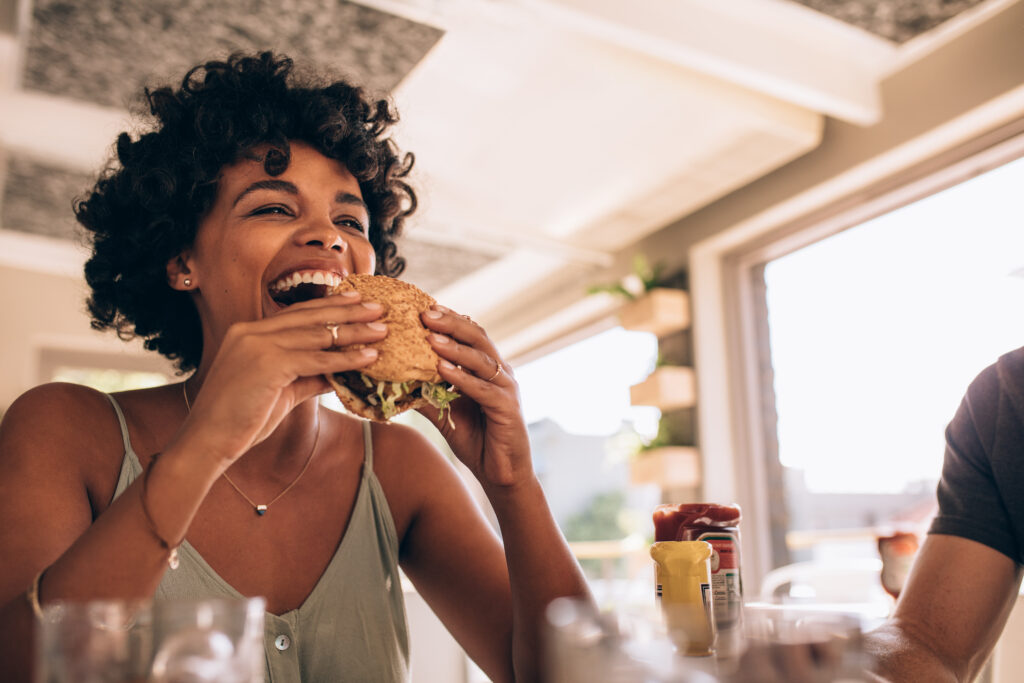
My client, Alyssa, was really struggling to get on track and feel in control of her eating. The hardest time for her was between lunch and dinner, and she often found herself in the kitchen just eating and eating for reasons that weren’t easy to identify. This repeated pattern of overeating in the afternoon was, in her own words, making her feel incredibly defeated.
Alyssa and I discussed this and realized that for her the best eating schedule for her to follow would be breakfast, lunch, and dinner with one snack after dinner (this doesn’t work for everyone!). Having a snack between lunch and dinner just didn’t work for her because it opened the door to eating, and once it was open, Alyssa found it very difficult to shut.
To help her stick to this plan, Alyssa and I discussed what strategies we needed to put into place and what sabotaging thoughts she might have that would try to convince her not to stick to the “no snacks between lunch and dinner” guideline. Alyssa identified that one thing she was likely to think after lunch was, “Just a little bit extra won’t hurt.” In response to this, I asked Alyssa to consider the evidence. What’s the evidence that allowing herself “just a little bit extra” would end up staying just a little bit extra? What’s the evidence that if she starts eating more after lunch, she ends up way overeating?
This was an easy question for Alyssa to answer: there was overwhelming evidence that if she bought into the thought, “Just a little bit extra won’t hurt” it would virtually never be just a little bit extra. It would lead her down the well-worn path of overeating, feeling out of control, and feeling defeated.
Alyssa and I decided that in addition to a response to that thought, she also needed an activity to immediately engage in when she finished lunch, to get her mind off food and onto something else. Alyssa enjoys doing the “Wordle” puzzle every day, so we agreed that right when she finished lunch, she would read a Response Card, then leave the kitchen and go out to her deck and do the Wordle. This is the Response Card Alyssa made:
When I’m done lunch, immediately leave the kitchen, go outside, and do the Wordle. If I have the thought, “Just a little bit extra won’t hurt,” remember that I have zero evidence that I’ll be able to stop at just a little bit extra, and hundreds of pieces of evidence that if I keep eating, I won’t be able to stop and will wind up feeling defeated. It’s worth it to go outside RIGHT NOW!
In session today, Alyssa was so proud to tell me that 5 of the 7 days over the past week this new strategy was effective (which was a HUGE accomplishment!). I asked her “How did you feel on the days you stopped eating after lunch and went outside?” Immediately Alyssa answered, “I felt amazing, confident, and in control.” I pointed out to Alyssa that she now has lots of evidence of what doesn’t make her feel good (eating off track after lunch) and five hugely important pieces of evidence of what made her feel awesome (stopping eating after lunch). I asked Alyssa to add those three phrases to her lunch Response Card as an extra reminder of how she’s about to feel when she stops eating after lunch: Amazing. Confident. In control.